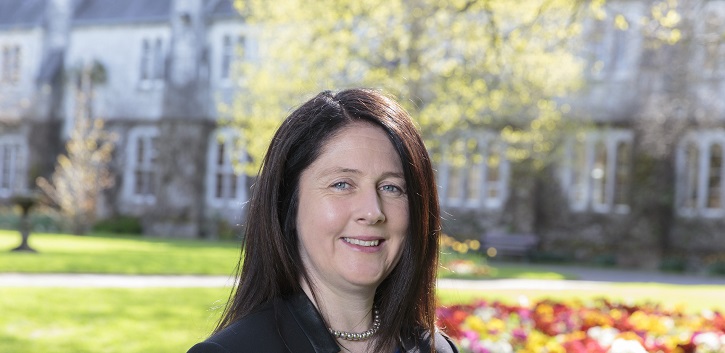1916 in 2016: An Unfinished Revolution?

In this ‘decade of centenaries’, numerous commentators have defined the 1916 Rising from the perspective of ‘professional history’, confining their interpretations to political outcomes and scales of revolutionary violence.
During the coming years we can expect more of this kind of debate from the historical establishment and the Irish media. But why has so much less attention been paid to the pressing social and political questions that followed from the 1916-23 historical period? In this second lecture of UCC’s ‘Reconsidering the Rising’ lecture series, Professor Linda Connolly, Sociology will argue that women's roles and rights within Irish society deserve closer scrutiny in discussions surrounding the history of the Irish Revolution. She will also call for an expanded national debate that considers women’s wider historical experience in independent Ireland.
On Wednesday 18th May, Professor Connolly will give a public lecture entitled: ‘1916 in 2016: An Unfinished Revolution?’, in the Ground Floor Lecture Theatre, Geology and Geography Building, UCC (beside the Honan Chapel) at 6pm.
An Unfinished Revolution? @drlindaconnolly speaks this week @UCC Reconsidering the Rising https://t.co/a78ql5YErQ pic.twitter.com/1OcfIgnACE
— theirishrevolution (@theirishrev) May 16, 2016
In her lecture Professor Connolly writes:
“The lessons of the past have real currency and importance in contemporary Ireland not least in the arena of women’s rights and in the written history of the Irish women’s movement, which is also facing a major centennial commemoration in 2018 one hundred years after suffrage was granted to Irish women.
A welcome outcome of the commemoration events, apart from the generation of burgeoning and exciting new literature on the history of the Rising and the period of Revolution, should include for example the critical reflection it can precipitate about gender issues, equal citizenship and the kind of society Ireland is and has become in 2016.
As women’s historians and other scholars have by now widely demonstrated, one of the travesties of the post-independence period of nation building was the marginal role the Church and State afforded to women as full and equal citizens in a range of arenas, despite achieving the vote in 1918.
Historical scholarship in recent decades has widely demonstrated that (some) women were to varying degrees afforded an active public role in the revolutionary process in 1916 but were systematically marginalized to the private sphere in the decades after Independence.
And yet, perhaps one of the biggest ‘myths’ in Irish history is the assumption that, because women in the post-independence were marginalized by Church-State policies and laws and by censorship, is the assumption they were not active agents in it – including in the private sphere of home and in the public realm of activism, work and politics.
As a consequence, their overwhelming oppression has seemed to suggest that they can be excluded from the prevailing narrative and political-State conflicts. The 1937 Constitution stated (still states) that women by their ‘life’ (as opposed to by their ‘work’) in the home, give to the State a support without which the common good cannot be achieved.
A cool and dispassionate historical interpretation of the 1937 clause suggests that it simply reflected the social order of the day. Women were in reality confined to sphere of the home and family, feminists of the time were ‘exceptional’ women who did not reflect the overall experience of Irish women and some even argue that this clause actually gave value to the stem family model on which Irish society was premised and in which women occupied a central (even powerful) role as mothers – ergo the fundamental role of history is to describe society as it was and “that’s ok”.
But to describe society within an agreed generalisation as to that’s how it was is to first create an ideological version of the past that presumes society is always built on consent and social order.
In addition, it fails to dissect the underlying power dynamics on which society was structured and the resistances, differences and conflicts within it - as well as the silences and oppression.
The importance of dissecting the power dynamics at the heart of Irish society have been recently demonstrated in various scandals and abuses in the arenas of motherhood and human reproduction such as, the discovery of the underground graves of numerous dead babies on the grounds of a former mother and baby home in Tuam and through personal testimonies of forced adoptions inflicted on Irish single mothers in Catholic institutions. In addition, the existence of cases of abuse and violence within the sanctified Irish family, so valorized in the Constitution, has been widely documented.
Why were profound scandals and abuses hidden from Irish history in the 20th century? What role did arguments about historical objectivity and the need to affirm the context of the time play in this?”
Professor Linda Connolly is author of The ‘Irish’ Family (Routledge, 2005), The Irish Women’s Movement: From Revolution to Devolution (Lilliput, 2003),and Social Movements and Ireland (MUP, 2007) (co-editor). She was Director of the 2015 Merriman Summer School.
This lecture is free and open to the public.
